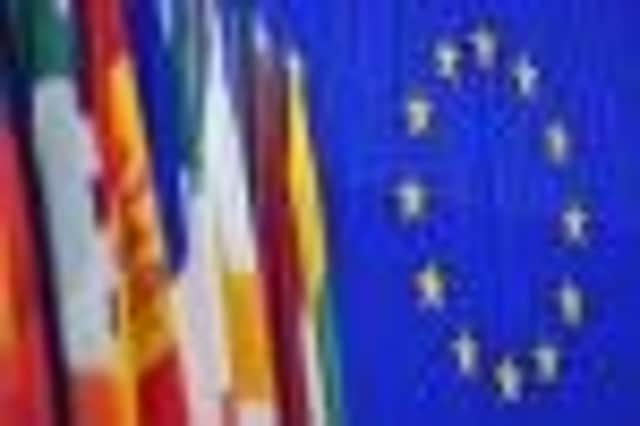Alex Orr: Small countries can have a big impact in Europe


Reading the reports from last week’s EU budget summit, one could be forgiven for thinking it is only France, Germany and the UK (EU3) that really matter.
However, in foreign policy, the story behind the headlines is increasingly the actions of the smaller states. The European Council for Foreign Relations’ (ECFR) European foreign policy scorecard tracks all the contributions – from EU institutions and the member states – that contribute to the impact of European foreign policy.
Advertisement
Hide AdAdvertisement
Hide AdAmid a general trend which scorecard 2013 shows towards member states co-operating on EU foreign policy, a strong story also emerges on the role that smaller states can play in leading initiatives.
While leadership from the big three notably dropped last year, interesting coalitions of smaller member states were instrumental in developing and championing foreign policy initiatives.
Although Germany, closely followed by the UK and France, still came out on top in terms of the number of times they were classed as leading on a foreign policy issue in 2012, the Franco-German motor was barely in evidence on foreign policy development, and the gap between the EU3 and smaller states had closed.
As an example, the unusual alliance of Denmark and Ireland was critical in pressing for a collective EU position on labelling of products exported from Israeli settlements, with UK backing only coming once the idea had been launched.
Austria, Belgium, Estonia and Ireland were also critical leaders (alongside larger states such as Spain, Poland, Italy, France and Germany) in their contributions to Common Security and Defence Policy missions.
At the UN, EU support for an arms trade treaty was driven not only by France and the UK, but also by Belgium, Bulgaria, Finland, Ireland and Sweden.
The impact of smaller states in 2012 gives good reason to hope that over time, the power that lies in the EU’s diversity can be used to the good of Europe’s global impact.
• Alex Orr is a board member of the European Movement.